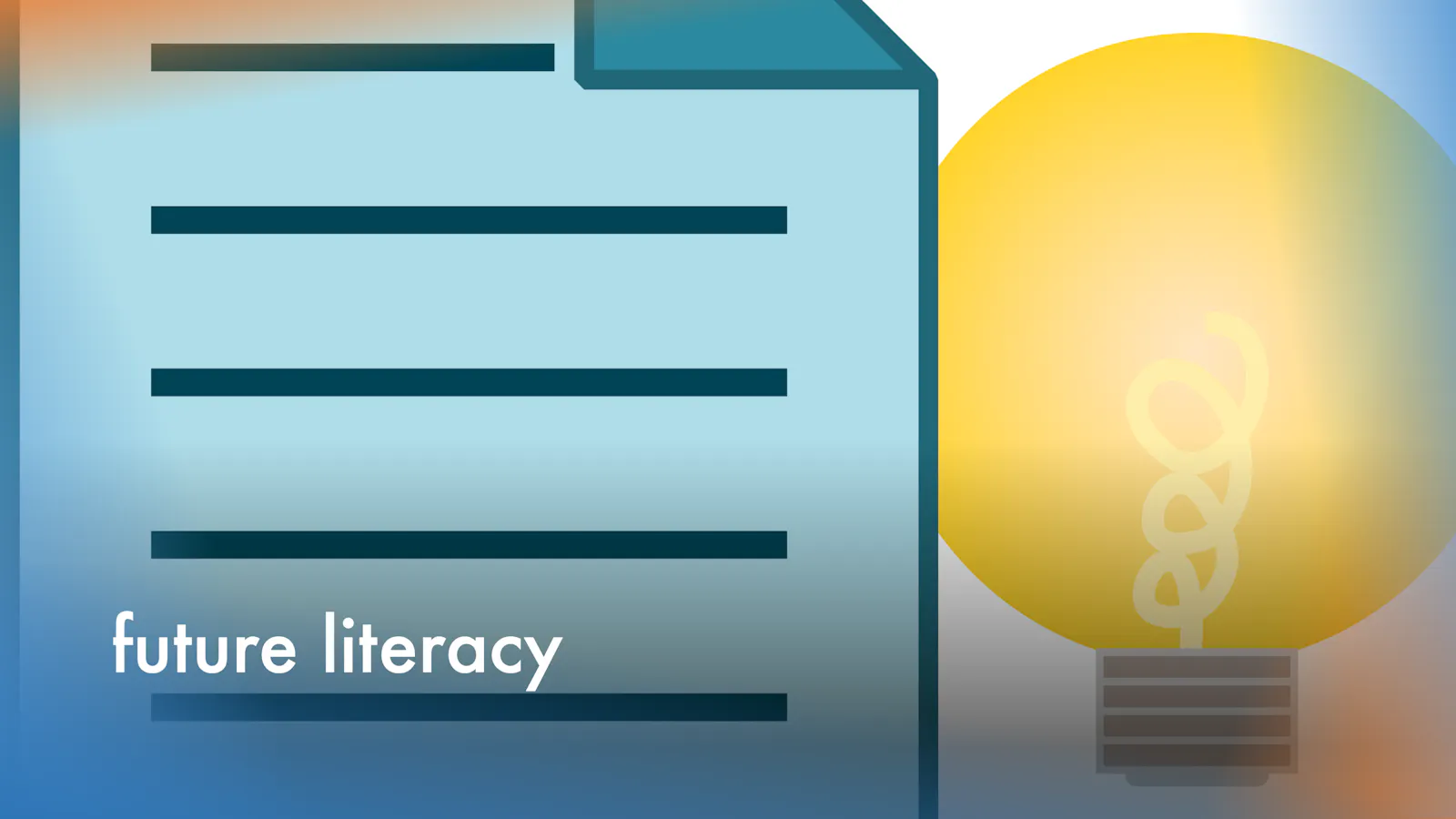Future literacy
August 2023

Summertime and holiday seasons are good opportunities for reading and recharging the batteries of our imagination. Imagination opens up creativity and learning, especially in challenging times, which demand different ways of out-of-the-box thinking for exploring possible futures in order to shape the present better. Imagination is important, as without the ability to image possible futures that inspire hope and foster collaboration, there is a high risk of resignation and despair.
In a world of rapid technological advancements and constantly evolving societies, making good decisions becomes ever more complex. The risk is that decisions are either driven by fears and reactions to implicit threats, or that they focus merely on the here and now. To avoid dystopian thinking and the tragedy of time horizons (Opens in a new window), we need to nourish our future literacy skills. Future literacy can help to understand and navigate complex futures, anticipate emerging trends, and adapt proactively to change.
What is future literacy?
The future exists only in our imagination. Future literacy is a capability which allows us to better understand the role of the future in what we see and do. It is a skill that builds on our capacity to imagine the future. The idea of futures literacy mimics the idea literacy, referring to the ability to read and write as basic skills. As for future literacy, it is about becoming more skilled at ’imagining’, ’reading’ and ’using’ the future. In principle, it is the capacity to know how to imagine the future, and why it is necessary. Put differently, it empowers the imagination, enhances our ability to prepare, recover and invent as changes occur. Importantly, it is about the ability to rigorously imagine possible futures, while avoiding the traps of presentism and dystopian or wishful thinking.
To read this post you'll need to become a member. Members help us fund our work to ensure we can stick around long-term.
See our plans (Opens in a new window)
Already a member? Log in (Opens in a new window)


